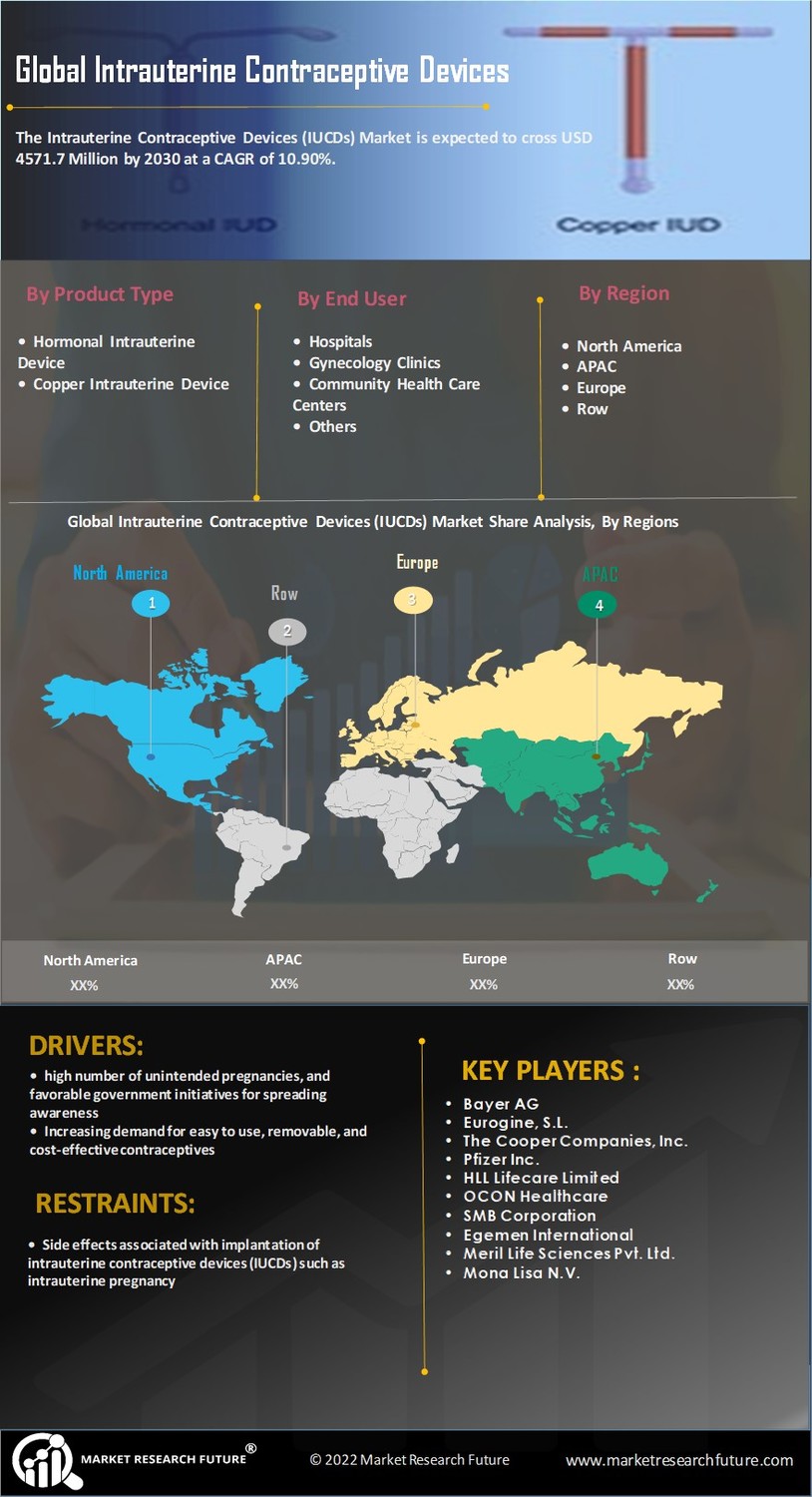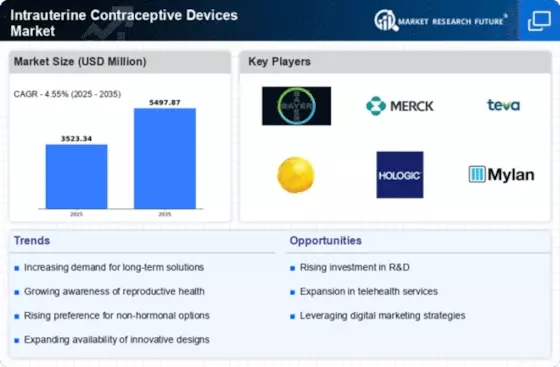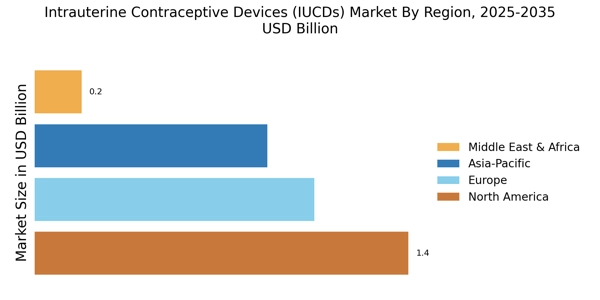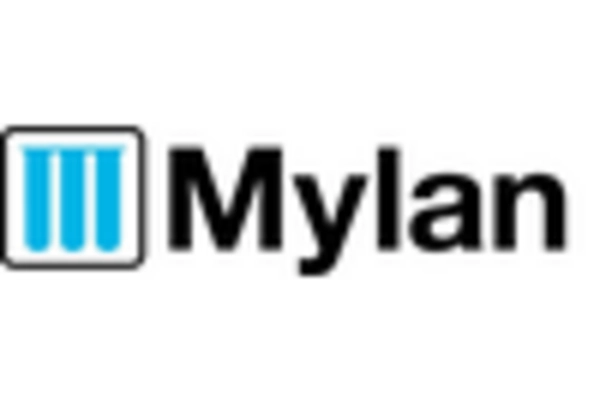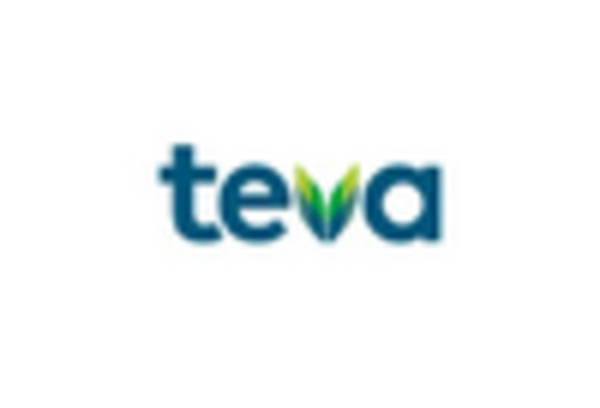Rising Focus on Family Planning
The Intrauterine Contraceptive Devices Market is significantly influenced by the rising focus on family planning across various demographics. As societies evolve, there is an increasing recognition of the importance of family planning in achieving personal and economic goals. This shift is reflected in the growing number of women seeking effective contraceptive methods, such as IUDs, to manage their reproductive health. Data indicates that regions with robust family planning initiatives have seen a marked increase in the uptake of IUDs. Consequently, the Intrauterine Contraceptive Devices Market is poised for growth as more individuals prioritize family planning and seek reliable contraceptive solutions.
Government Initiatives and Support
Government initiatives aimed at promoting reproductive health are playing a crucial role in the Intrauterine Contraceptive Devices Market. Many countries are implementing policies that encourage the use of contraceptives, including IUDs, as part of broader public health strategies. These initiatives often include funding for family planning programs, educational campaigns, and subsidized access to contraceptive methods. For instance, some governments have allocated substantial budgets to improve access to reproductive health services, which has led to increased availability of IUDs. This support not only enhances awareness but also fosters a favorable environment for the growth of the Intrauterine Contraceptive Devices Market, as more women gain access to these essential health services.
Technological Innovations in IUD Design
Technological innovations in the design and functionality of intrauterine devices are transforming the Intrauterine Contraceptive Devices Market. Advances in materials and manufacturing processes have led to the development of more effective and user-friendly IUDs. For instance, newer models are designed to minimize discomfort during insertion and enhance overall user experience. Additionally, innovations such as hormone-releasing IUDs have expanded the options available to women, catering to diverse needs and preferences. As these technological advancements continue to emerge, they are expected to drive the growth of the Intrauterine Contraceptive Devices Market, attracting more users seeking modern and effective contraceptive solutions.
Enhanced Education and Awareness Campaigns
Education and awareness campaigns regarding reproductive health are pivotal in shaping the Intrauterine Contraceptive Devices Market. These campaigns aim to inform women about the various contraceptive options available, including the benefits and risks associated with IUDs. Increased knowledge empowers women to make informed choices about their reproductive health. Recent statistics suggest that regions with comprehensive educational programs have experienced a rise in IUD usage, indicating a direct correlation between awareness and adoption rates. As more organizations and healthcare providers invest in these initiatives, the Intrauterine Contraceptive Devices Market is likely to witness sustained growth, driven by an informed consumer base.
Increasing Demand for Long-Acting Reversible Contraceptives
The Intrauterine Contraceptive Devices Market is experiencing a notable surge in demand for long-acting reversible contraceptives (LARCs). This trend is largely attributed to the growing awareness among women regarding the benefits of LARCs, which include reduced need for frequent medical visits and high efficacy rates. According to recent data, LARCs, including intrauterine devices (IUDs), account for a significant portion of contraceptive use in various regions. The convenience and effectiveness of IUDs are appealing to many women, leading to an increase in their adoption. As more healthcare providers advocate for LARCs, the Intrauterine Contraceptive Devices Market is likely to expand further, catering to the evolving preferences of women seeking reliable contraceptive options.
